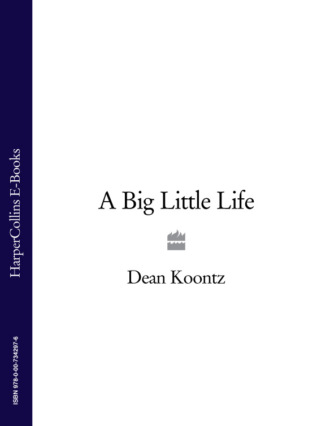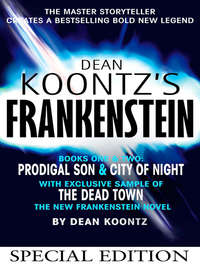
Полная версия
A Big Little Life
On our first date, between selling tickets and spinning records and selling refreshments and cleaning the gym, we found time for only one dance, but we shared a lot of laughs.
Nevertheless, after escorting her to her door and saying good night, I worried about the impression I had made. I considered racing home to call her and ask for an official date evaluation, but decided I would appear too needy.
The following day, Sunday, was interminable, as if the rotation of the Earth slowed dramatically. Monday morning, at school, I was lying in wait at Gerda’s locker when she appeared in the hall outside her homeroom. I half expected a polite hello and a claim of amnesia regarding the events of Saturday evening. Instead, she professed to have laughed so much during our five hours together that her tummy muscles hurt the next morning.
I always assumed girls found dating me to be painful, but this was good pain. We continued to date. And laugh together.
I asked her to marry me, and she did.
Shortly after college, and after our wedding, I went to work in a federal anti-poverty initiative for seven months, long enough to discover that such programs enriched those administering them but otherwise created more poverty. And the low pay extended my penury for over half a year.
Although Gerda was a bookkeeper with accounting skills and had worked in a bank for a few years, she couldn’t find such employment in the tiny Appalachian town, Saxton, where I taught disadvantaged kids. She took a piecework job in a shoe factory, and boarded a company bus at four o’clock each weekday morning for a forty-five-minute trip over the mountains to the manufacturing plant.
We were married with a few hundred dollars, a used car, and our clothes. Of the few houses for rent in Saxton, one had full indoor plumbing. Having moved up from an outhouse lifestyle a decade before, I was loath to return. Rent was sixty-five dollars per month, more than we could afford, but we scrimped on other things to pay it.
The house had neither a refrigerator nor a stove. We bought a used fridge and an electric hot plate. Without an oven, with a hot plate instead of a cooktop, Gerda prepared wonderful meals and could even bake anything we desired, except pies, because the filling would burn at the bottom and remained uncooked at the top.
Financially, that was an iffy year for us, and we worked long hours. But we were happy because we were together.
From Saxton, we moved to the Harrisburg area, and I taught high-school English for eighteen months before Gerda made me an offer that changed our lives. Writing in my spare time, I had sold a few short stories and two paperback novels. “You want to be a full-time writer,” she said. “So quit teaching. I’ll support us for five years. If you can’t make it in five years, you never will make it.”
I sometimes claim that I tried to bargain her up to seven years, but she was a tough negotiator.
All these years later, I am humbled by her faith in me and the love that inspired her offer. Considering our situation at the time—shaky finances, limited prospects, more rejections than acceptances from publishers—her trust seems extraordinary. Although I hope that over the years I have become a man who would make such an offer to her if my talent was for math and hers was for words, I am humbled because I was not that good a man in those days.
Growing up in poverty, with psychological and physical violence, always embarrassed by my father’s escapades, I became by my twenties a man who needed approval almost as a child needs it. I needed too desperately to prove myself, and as a consequence I made numerous bad decisions in business. I was too eager to trust the untrustworthy, to believe patently false promises, to take bad advice if it came from someone who seemed to be knowledgable—and especially if they manipulated me with praise. Always an excellent judge of character, Gerda knew in every instance where I was going wrong, and she tried gently to steer me away from the current cliff, but I took too many years to realize that the only approval that really mattered—in addition to God’s—was hers. Throughout my adult life, Gerda has been a light to lead me.
When some members of both our families and other acquaintances learned that I now wrote fiction full-time while Gerda brought home the bacon as well as the eggs and potatoes that went with it, they took this development as proof that I was a good-for-nothing like my father. They pitied Gerda—and from time to time needled me.
For Gerda and for me, for so many reasons, failure was not a possibility we could accept. At the end of the five years, she quit her job so that we could work together. She managed our finances, did book research, and relieved me of all the demands of life and business that sapped creative energy and that kept my fingers away from the typewriter.
By then, we were making a respectable living but not a fortune. During the next five years, the quality of what I wrote improved, but progress in craft and art was seldom matched by increased financial rewards. After a Pennsylvania spring in which we never saw blue sky for forty days—very biblical—we had moved to California for the better weather, and incidentally because of opportunities to do screenwriting. In my early Hollywood ventures, however, I found the film business unfulfilling and depressing. We knew that novelists come and go, that if I did not become essential to a publisher’s bottom line, I would sooner rather than later be one of those who had gone and was forgotten.
By 1980, success began to come. Twenty-nine years later, as I write this, worldwide sales of my novels are approaching four hundred million copies. Critics have been largely kind, readers even kinder.
Besides a passion for the English language and an abiding love of storytelling, success required persistence and countless hours of hard work. The central experience of my life and of Gerda’s has been hard work, at least sixty hours a week, often seventy, sometimes more.
Our faith tells us that when the last hour comes, the best places to be taken are while in prayer or while engaged in work to which we committed ourselves in cheerful acceptance of the truth that work is the lot of humanity, post Eden. If done with diligence and integrity, work is obedience to divine order, a form of repentance.
For many years, as we gave ourselves to work, we talked about getting a dog. Even in the days when we were on a tight budget, we surrounded ourselves with beauty—cheap posters instead of original oil paintings, carnival glass instead of Daum vases—because beauty soothes the troubled mind and inspires. A dog can be a living work of art, a constant reminder of the exquisite design and breathtaking detail of nature, beauty on four paws. In addition, year by year, we became more aware that this world is a deeply mysterious place, and nothing confirmed the wonder of existence more than what we saw happening between dogs and people with disabilities at Canine Companions for Independence. Being guardians and companions of a dog would be one way to explore more fully the mystery of this world.
We knew that dogs are not well loved if kept largely in the yard, that they are pack animals born to live within a family, and that a dog therefore requires almost as much time as a child. We hesitated to take the plunge because of our work schedules and because after more than three decades of marriage, we had a rhythm to our life that worked and that we feared disrupting.
But in September of 1998, a dog finally entered our lives. Over the subsequent nine years, she often amazed us, frequently astonished us, always delighted us, and in time evoked in us a sense of wonder that will remain with us for the rest of our lives. As any man or woman is not only a man or a woman but is also a spirit corrupted in minor or major ways, so this dog was not only a dog, but also a spirit uncorrupted as no human spirit can be. Of all the agents of this world that have changed me for the better, this dog takes second place only to Gerda, and she brought as much to Gerda as to me.
This dog was as joyful as the most joyful of her kind. She possessed all the many virtues of her species. She was as direct as all dogs are. But she was uncannily intelligent, as well, and in a most undoglike way, she was also at all times mysterious and capable of a solemn behavior that was not merely mood, that was a ceremonial solemnity, as though she observed an important truth implicit in the moment and wished for you to recognize it as well. Gerda and I were not the only ones to witness this behavior, and the more that I grew aware of it and heard it remarked upon by others, the more I became open to the changes this special dog would make in me.
Along came Trixie.
Конец ознакомительного фрагмента.
Текст предоставлен ООО «ЛитРес».
Прочитайте эту книгу целиком, купив полную легальную версию на ЛитРес.
Безопасно оплатить книгу можно банковской картой Visa, MasterCard, Maestro, со счета мобильного телефона, с платежного терминала, в салоне МТС или Связной, через PayPal, WebMoney, Яндекс.Деньги, QIWI Кошелек, бонусными картами или другим удобным Вам способом.







